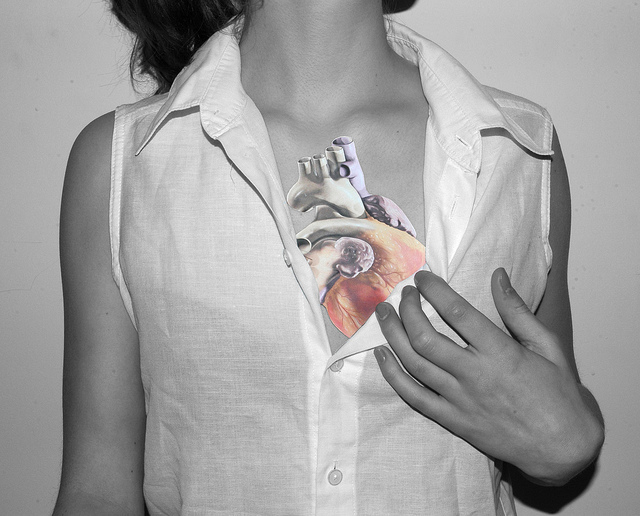
[Author’s note: This article focuses on women’s body image issues. That’s not to suggest that men do not have struggles themselves; only that, as a woman, I can only speak from a female perspective. Any males wishing to share their viewpoint on the issue are free to comment below.]
In our appearance obsessed world, the pressure for women to measure up to unrealistic body expectations is unbelievably high.
We are surrounded by images of flawless women who have perfectly sculpted bodies, spotless skin and perfect teeth. Nearly every single picture we see has been doctored by Photoshop to make skin appear brighter, dull eyes sparkly, tummies less bulgy and thighs more shapely.
The media picks celebrities apart for bad wardrobe choices, speculates over their bellies if there is even the slightest bulge (because if a woman has a bulge in her lower abdomen surely she must be pregnant!) and brings fluctuations of weight before the unforgiving public eye.
We are encouraged to undertake this diet or that cleanse, which keeps us solely focused on eating to lose body fat or maintain an ideally low weight.
I see pictures of young women on social media doing all sorts of crazy things to show off their stick thin figures.
There’s the thigh gap test that says if your thighs touch you’re fat if they don’t you’re fine; the test that measures your skinniness by how many coins you can stack along your collarbone; and the infamous belly button challenge where you’re considered fat if you can’t wrap your arm around your middle and touch your belly button. And did you know that there is actually an app that will thin your face in pictures? It’s called SkinneePix. Sad but true.
It’s no longer just ageing women opting for cosmetic surgery. Teenage girls are going under the knife, young adults in are getting Botox or fillers and I’m sure there is even more happening out there than I care know.
We have become so lost in an image-focused world, and we need to take a sharp turn to protect our future generations from going even further down this crazy rabbit hole.
This is an issue close to my heart. As someone who has felt the need to have the perfect body—who has gone to great lengths to do so—I want to see this unrelenting pressure shift.
I know what it’s like to be so damn hard on yourself that you agonize over any slight fluctuation in weight. Left to her own devices, the inner critic in my head goes wild over new lumps and bumps that weren’t there yesterday. More often than I would like to admit, that voice pits my body against the ideal body and tells me that I come up woefully short.
This voice has come from years of exposure to a culture that parades skinniness as the end all and be all. We’ve all been exposed to it for so long, it’s become deeply ingrained in our psyche that skinny equals sexy. And while the last 20 years have seen an increase, this has been an issue for women for generations.
I grew up with a mother who worked in the fitness industry. She had an incredibly athletic body and was fitter than I will ever be in any lifetime.
Yet, I still recall her trying to lose weight on a regular basis.
Back in the 90s, before anyone realised sugar was the real culprit, we had skim, skinny and low fat everything in our kitchen. And while a big part of this was my mother ensuring I ate a healthy diet, the implicit message was, always watch your weight.
Even though she tried to instill in me a healthy body image—a healthy relationship with food; the belief that my body was beautiful however it looked—my mother taught me more about body image through her own struggle than she ever did with any words .
Children learn through observation.
Infants learn to walk and talk primarily because they watch the world around them and imitate what they see as their cognitive and coordination abilities improve.
As a child, I saw my mother measure herself up in the mirror and judge herself imperfect. So this is how I learned to measure myself.
To me, this is where we need to start: In our own homes, with our own bodies.
Changing our media and social culture starts with us.
We need to unpick the unhealthy beliefs we have about ourselves and our bodies. We need to start honouring our bodies to break the cycle of body issues.
We do this by learning to nourish our bodies, feeding them the nutrients, vitamins and minerals they need from whole foods. By recognising that women’s bodies need around 18-30% (approximately) of their weight to be body fat to regulate and produce essential hormones. By building a healthy relationship with food and not being so incredibly hard on ourselves about our body.
We teach our children so much about how to think and feel about themselves by how we think and feel about ourselves.
How we behave when we forget that they’re looking on and watching everything we do with their eagle-eye.
We can tell a child to eat proper meals and focus on nourishing their bodies rather than worrying about getting fat until we’re blue in the face. Unless we follow suit and actually practice what we preach, it’s not going to stick.
Fighting (and lovingly letting go of) this nasty voice in my head is important to me; I want it to stop with me. I am committed to maintaining a healthy relationship with food and sustaining the body I have been gifted—both for myself and for my future children.
I want to ensure that my actions match my words.
Our society has a long way to go to break this cycle of self-abuse and self-neglect, and yes, we need to fight for change.
We need to raise our combined voices to the wind to influence the shape of things to come.
But we also need to start with ourselves.
Only then can we truly break the cycle and allow our future generations work with a clean slate.
~
Further Reading:
Built Lean, Ideal Body Fat Chart
~
Relephant:
7 Eating Lessons for Those Who Struggle with Body Image.
~
Author: Sarah Kolkka
Editor: Toby Israel
Photo: Charlotte Astrid on Flickr


Read 0 comments and reply